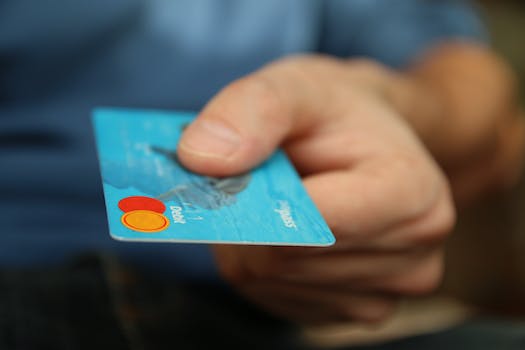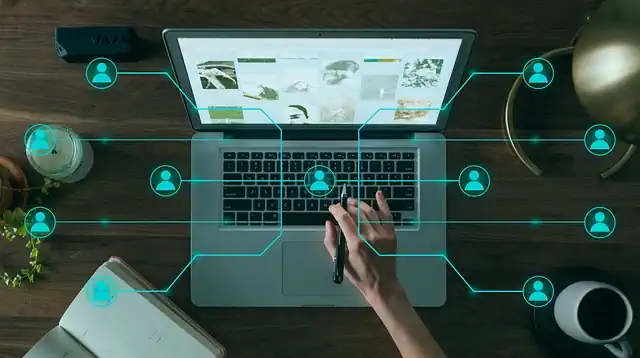How To Start A Small Business Without Money
“Turning passion into profit without breaking the bank.”
Introduction
Starting a small business without money may seem like an impossible task, but it is not. With the right mindset, creativity, and determination, anyone can start a business without a lot of money. In this article, we will discuss some tips on how to start a small business without money.
Bootstrapping Your Business: Tips and Tricks for Starting with No Money
Starting a small business can be a daunting task, especially if you don’t have a lot of money to invest. However, with the right mindset and a little creativity, it is possible to start a successful business without breaking the bank. In this article, we will explore some tips and tricks for bootstrapping your business and getting it off the ground without spending a lot of money.
First and foremost, it’s important to have a clear idea of what your business will be and what it will offer. This will help you to focus your efforts and resources on the most important aspects of your business. Once you have a clear idea of your business, it’s time to start thinking about how you can get it up and running without spending a lot of money.
One of the best ways to start a small business without money is to leverage your existing skills and resources. For example, if you have a talent for writing, you could start a freelance writing business. If you have a knack for graphic design, you could start a design business. By leveraging your existing skills and resources, you can start a business without having to invest a lot of money upfront.
Another way to start a small business without money is to use free or low-cost resources. For example, you can use free website builders like Wix or WordPress to create a website for your business. You can also use free social media platforms like Facebook, Twitter, and Instagram to promote your business and connect with potential customers. By using these free resources, you can save money on marketing and advertising costs.
Networking is also an important part of starting a small business without money. By networking with other entrepreneurs and business owners, you can learn from their experiences and get advice on how to start and grow your business. You can also find potential customers and partners through networking events and online communities. By building relationships with other entrepreneurs and business owners, you can create a support system that can help you succeed.
Another way to start a small business without money is to offer your services for free or at a reduced rate. This can help you to build a portfolio of work and gain experience in your field. You can also use this experience to build your reputation and attract paying customers in the future. By offering your services for free or at a reduced rate, you can also build relationships with potential customers and partners.
Finally, it’s important to be resourceful and creative when starting a small business without money. This means thinking outside the box and finding innovative solutions to problems. For example, instead of renting office space, you could work from home or a co-working space. Instead of buying expensive equipment, you could rent or borrow it from someone else. By being resourceful and creative, you can save money and find new opportunities for your business.
In conclusion, starting a small business without money is possible if you have the right mindset and a little creativity. By leveraging your existing skills and resources, using free or low-cost resources, networking, offering your services for free or at a reduced rate, and being resourceful and creative, you can start a successful business without breaking the bank. Remember, starting a business is a journey, and it takes time and effort to build a successful business. But with the right mindset and a little creativity, anything is possible.
Creative Financing: Alternative Ways to Fund Your Small Business

Starting a small business can be a daunting task, especially when you don’t have the financial resources to get it off the ground. However, with a little creativity and resourcefulness, it is possible to start a small business without money. In this article, we will explore some alternative ways to fund your small business.
1. Crowdfunding
Crowdfunding is a popular way to raise money for a small business. It involves creating a campaign on a crowdfunding platform and asking people to contribute money to your business in exchange for rewards or equity. Crowdfunding can be a great way to test the market and get feedback on your business idea before investing your own money.
2. Bartering
Bartering is an age-old practice that involves trading goods or services without the use of money. If you have a skill or product that someone else needs, you can offer to trade it for something that you need for your business. For example, if you are a graphic designer, you can offer to design a website for a local restaurant in exchange for free meals.
3. Grants
There are many grants available for small businesses, especially those that are focused on social or environmental impact. These grants can provide funding for everything from research and development to marketing and advertising. To find grants that are available for your business, you can search online or contact your local government or business development center.
4. Bootstrapping
Bootstrapping is a term used to describe starting a business with little or no outside funding. This involves using your own resources, such as savings, credit cards, or personal loans, to fund your business. While bootstrapping can be risky, it can also be a great way to maintain control over your business and avoid taking on debt.
5. Angel Investors
Angel investors are wealthy individuals who invest in small businesses in exchange for equity. They can provide funding, mentorship, and connections to help your business grow. To find angel investors, you can attend networking events, pitch competitions, or use online platforms that connect entrepreneurs with investors.
6. Microloans
Microloans are small loans that are typically used to start or grow a small business. They are often provided by non-profit organizations or government agencies and can be a great way to get funding without having to go through a traditional bank. Microloans can be used for everything from purchasing equipment to hiring employees.
In conclusion, starting a small business without money is possible, but it requires creativity and resourcefulness. By exploring alternative ways to fund your business, such as crowdfunding, bartering, grants, bootstrapping, angel investors, and microloans, you can turn your business idea into a reality. Remember to do your research, create a solid business plan, and be persistent in your efforts to secure funding. With hard work and determination, you can build a successful small business without breaking the bank.
The Power of Networking: How to Build Relationships and Get Support for Your Business
Starting a small business can be a daunting task, especially if you don’t have a lot of money to invest. However, with the right mindset and approach, it is possible to start a successful business without breaking the bank. One of the most important things you can do is to build a strong network of relationships and get support from others who believe in your vision.
Networking is a powerful tool that can help you connect with potential customers, partners, and investors. It involves building relationships with people who share your interests and goals, and who can help you achieve your objectives. Networking can take many forms, from attending industry events and conferences to joining online communities and social media groups.
To start building your network, you need to identify the people and organizations that are most likely to be interested in your business. This could include other entrepreneurs, industry experts, potential customers, and local business associations. Once you have identified these groups, you can start reaching out to them and building relationships.
One of the best ways to build relationships is to offer value to others. This could involve sharing your expertise, offering advice and support, or simply being a good listener. By providing value to others, you can establish yourself as a trusted and respected member of your community, which can help you attract new customers and partners.
Another important aspect of networking is to be proactive and persistent. Don’t be afraid to reach out to people and introduce yourself, even if you don’t know them personally. Be polite and respectful, and always follow up on your interactions. This can help you build a strong network of contacts who can support you as you grow your business.
In addition to building relationships, it’s also important to seek out support from others who believe in your vision. This could include family and friends, mentors, and investors. These individuals can provide you with the financial and emotional support you need to get your business off the ground.
When seeking support, it’s important to be clear and concise about your business goals and objectives. Be prepared to explain your business model, target market, and competitive advantage. This can help potential investors and supporters understand your vision and make informed decisions about whether to invest in your business.
Finally, it’s important to be patient and persistent when building your network and seeking support. Building relationships takes time and effort, and it may take some time before you start seeing results. However, by staying focused and committed to your goals, you can build a strong network of contacts and supporters who can help you achieve success.
In conclusion, starting a small business without money is possible, but it requires a lot of hard work and dedication. By building a strong network of relationships and seeking support from others, you can increase your chances of success and achieve your business goals. So don’t be afraid to reach out to others and start building your network today!
Leveraging Free Resources: Tools and Services to Help You Launch Your Business for Free
Starting a small business can be a daunting task, especially if you don’t have a lot of money to invest. However, with the right mindset and a little creativity, it is possible to launch a successful business without breaking the bank. In this article, we will explore some of the free resources available to entrepreneurs that can help them get their business off the ground.
First and foremost, it’s important to have a solid business plan in place. This will help you define your goals, target market, and strategies for success. There are many free resources available online that can help you create a business plan, such as the Small Business Administration’s (SBA) Business Plan Tool. This tool provides step-by-step guidance on how to create a comprehensive business plan that will impress potential investors and lenders.
Once you have your business plan in place, it’s time to start building your brand. One of the most important aspects of branding is having a professional-looking logo. Fortunately, there are many free logo design tools available online, such as Canva and LogoMakr. These tools allow you to create a custom logo that reflects your brand’s personality and values.
Another important aspect of branding is having a strong online presence. This includes having a website that showcases your products or services, as well as social media accounts that allow you to connect with potential customers. There are many free website builders available, such as Wix and WordPress, that make it easy to create a professional-looking website without any coding experience. Additionally, social media platforms like Facebook, Twitter, and Instagram are free to use and can help you reach a wider audience.
In addition to building your brand, it’s important to have the right tools and resources to manage your business. This includes accounting software, project management tools, and customer relationship management (CRM) software. Fortunately, there are many free options available, such as Wave for accounting, Trello for project management, and HubSpot for CRM. These tools can help you stay organized and streamline your business operations.
Another important aspect of starting a small business is networking and building relationships with other entrepreneurs and industry professionals. This can help you learn from others’ experiences, gain valuable insights, and potentially find new customers or partners. There are many free networking events and groups available, such as Meetup and SCORE. These resources can help you connect with like-minded individuals and build a strong support system.
Finally, it’s important to stay up-to-date on industry trends and best practices. This can help you stay ahead of the competition and make informed decisions about your business. There are many free resources available, such as industry blogs, podcasts, and webinars. Additionally, the SBA offers free online courses and workshops on a variety of topics, such as marketing, finance, and legal issues.
In conclusion, starting a small business without money may seem like a daunting task, but with the right mindset and free resources, it is possible to launch a successful business. By leveraging free tools and services, such as business plan templates, logo design tools, website builders, and networking events, entrepreneurs can build a strong brand, manage their business operations, and stay informed about industry trends. With hard work and dedication, anyone can start a small business and achieve their entrepreneurial dreams.
Hustle and Grit: Strategies for Starting a Small Business with Nothing but Your Own Hard Work and Determination
Starting a small business can be a daunting task, especially when you don’t have any money to invest. However, with the right mindset and a lot of hard work, it is possible to start a successful business without any capital. Here are some tips on how to start a small business without money.
1. Identify your skills and talents
The first step in starting a small business without money is to identify your skills and talents. What are you good at? What do you enjoy doing? These are important questions to ask yourself because they will help you determine what type of business you can start without any capital.
For example, if you are good at writing, you could start a freelance writing business. If you are good at graphic design, you could start a graphic design business. The key is to identify your strengths and use them to your advantage.
2. Research your market
Once you have identified your skills and talents, the next step is to research your market. Who are your potential customers? What are their needs and wants? What are your competitors doing?
By researching your market, you will be able to identify opportunities and gaps in the market that you can fill. This will help you to create a unique selling proposition for your business.
3. Use free resources
When starting a small business without money, it is important to use free resources as much as possible. This includes using free software, free marketing tools, and free business advice.
For example, you can use free software like Google Docs and Canva to create documents and graphics for your business. You can also use free marketing tools like social media to promote your business.
There are also many free resources available online that can help you with your business. For example, the Small Business Administration (SBA) offers free business advice and resources to entrepreneurs.
4. Start small
When starting a small business without money, it is important to start small. This means starting with a small product or service and gradually expanding as your business grows.
Starting small will help you to minimize your expenses and reduce your risk. It will also allow you to test your business idea and make adjustments as needed.
5. Network
Networking is an important part of starting a small business without money. By networking with other entrepreneurs and business owners, you can learn from their experiences and gain valuable insights into the industry.
Networking can also help you to find potential customers and partners for your business. Attend networking events, join online communities, and reach out to people in your industry to build your network.
6. Be persistent
Starting a small business without money requires a lot of persistence and determination. There will be times when things don’t go as planned, and you may feel like giving up. However, it is important to stay focused on your goals and keep pushing forward.
Remember that success doesn’t happen overnight. It takes time and hard work to build a successful business. Be patient, stay persistent, and never give up on your dreams.
In conclusion, starting a small business without money is possible with the right mindset and a lot of hard work. By identifying your skills and talents, researching your market, using free resources, starting small, networking, and being persistent, you can start a successful business without any capital. So, go out there and hustle and grit your way to success!
Conclusion
Starting a small business without money is possible, but it requires creativity, resourcefulness, and hard work. Some strategies include leveraging free resources, bartering services, crowdfunding, and starting small. It’s important to have a solid business plan, a clear understanding of your target market, and a willingness to learn and adapt. With determination and perseverance, anyone can start a successful business without a lot of money.






